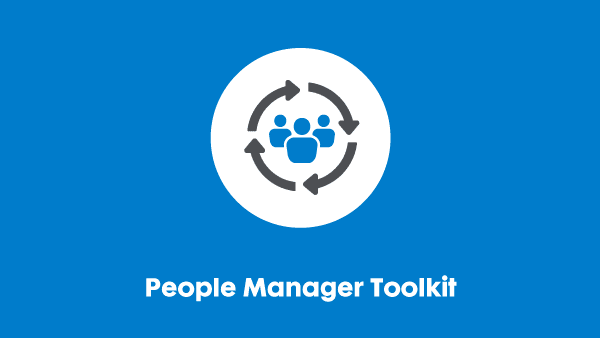Last updated: 11 September 2024
Factsheet – Tourette’s syndrome
What is Tourette’s syndrome?
Tourette’s syndrome (TS) is a neurological condition that causes a person to ‘tic’.
Tics are sudden, repetitive, involuntary movements or sounds. For example, repetitive rapid blinking, twitching of the head or making tongue-clicking noises.
The stereotypical image of swearing or offensive language (coprolalia) affects about 10 per cent of people with TS. As only 0.6 per cent of children have TS, only a very tiny number of people experience coprolalia.
Tics, the characteristic features of TS, usually start in early childhood, with symptoms peaking in a person’s early teens. Boys are three to five times more likely to be diagnosed with TS than girls. In many cases, the symptoms can improve or disappear with age. TS can be inconsistent in its presentation on a daily basis. It also changes in nature and pattern over time.
People with TS are often diagnosed with other closely related conditions, the most common co-occurring conditions being obsessive compulsive disorder (OCD) and attention deficit hyperactivity disorder (ADHD). Anxiety and depression are also common.
The cause of TS is unknown, but there is evidence of it being an inherited condition. Research indicates that genetic variations and environmental factors are also involved.
There is no cure for TS, but treatments and strategies can help a person manage their symptoms effectively.
How does TS affect an individual?
TS is a complex condition, and no two people will have the same experience. Some people have barely noticeable and very mild tics. For others, the tics may be more noticeable but are still generally unobtrusive. There will also be people whose tics are much more frequent and pronounced.
Having a tic is often compared to hiccups or sneezing. The actions may be suppressed temporarily, but eventually, the body will have to give in and sneeze or hiccup.
Tics can be split into the following groups:
- Motor tics – sudden, involuntary body movements. Examples include blinking, facial spasms, shoulder shrugging, limb twitching, clapping, and imitating other people’s gestures.
- Vocal tics – sounds that a person makes with their voice. Examples include tongue clicking, humming, whistling, throat clearing, blurting out random words, or shouting.
In addition, the tics can then be defined as either simple or complex:
- Simple – when one or just a few parts of the body are affected. For example, eye twitching or rapid blinking.
- Complex – this involves several parts of the body in one episode and may run in a regular pattern, such as facial spasms and limb twitching followed by whistling.
Tics – and trying to suppress them – can be very tiring, and in some cases, painful for the person. They can also feel very self-conscious about their tics, and this can affect their self-confidence and self-esteem.
Potential impact
Depending on the nature of your organisation, you may have customers, clients, service users, as well as employees engage with you – in person, over the phone or virtually. Some of those people will have TS.
If the tics are severe, some people may appear aggressive as they try to cope with TS’s visible impact. The tics and behaviours can be made worse by the perceived or actual stress of the situation and other people’s reactions.
Triggers
Like most conditions, some triggers can exacerbate the tics. The most common include:
- excitement
- anxiety
- stress
- fatigue
- prolonged suppression of tics
- certain sounds (such as sniffing, for example) can trigger a person with TS to involuntarily copy the sound
- constrictive clothing such as ties can provoke head and neck tics in some people.
Legal duties
The Equality Act 2010
In the UK, employers have duties to:
- prevent discrimination, and
- provide reasonable adjustments
for their disabled employees. This means it is unlawful for employers to treat applicants, job candidates and employees unfavourably because of their disability.
The Equality Act also requires employers to make ‘reasonable adjustments’ for their disabled employees.
For more information, see our ‘Briefing – Adjustments in employment’.
Suggested adjustments
If someone has TS, they may be covered under the Equality Act 2010. For advice tailored to specific circumstances, contact our Advice Service.
Some individuals with TS may benefit from some of the following adjustments:
- Discuss with the employee what they need to help them manage their TS at work. They are best placed to advise on their specific triggers and management strategies.
- Staff training on TS is advised to help all staff understand how to react to a colleague’s or customer’s tics and reduce potential triggers.
- Reduce stress where possible. Potential and actual stressors can be identified and acted up through a stress risk assessment or regular review in routine one-to-one meetings with their manager.
- Fatigue should be avoided where possible, as this is a common trigger. This may be achieved by ensuring regular breaks and holidays are taken, for example.
- Tics will happen in the workplace and they are likely to be more exaggerated and frequent in stressful situations such as interviews. Allowances for this should be incorporated into any decisions on suitability for potential employment or promotion, for example.
- Consider the needs of the whole person and the barriers they face. For example, if they also have ADHD, they may have additional requirements related to that.
- Some people with TS feel more comfortable sitting away from colleagues as they fear disturbing their colleagues or being stared at. It may also enable them to manage and reduce their tics to a greater degree.
- Controlling tics is tiring, distracting and sometimes painful. There will be times when a person will need time and privacy to release their pent-up tics. A quiet room or being able to go outside can be ideal for this.
- Where an employee, such as an electrician, visits other sites or customers, they may wish to carry a card from their company that explains that they have a condition and that enables the customer to understand that the tics are part of their disability. Some employees will not be comfortable with this system. They should not be forced to use it or advise colleagues or clients of their disability if they do not wish to.
- Involve a person with TS at an early stage when changes to the work environment or practices are planned. Some changes may adversely affect the management of tics, and early intervention in change management can often mitigate this.
Further information
For more information on suggested adjustments, specific barriers for migraine and information about the law, please see our other resources in the Knowledge Hub.
Advice Service
For more detailed information and advice about a specific situation, contact the Advice Service:
Telephone: +44-20-7403-3020
Textphone: +44-20-7403-0040
Email: advice@businessdisabilityforum.org.uk
Tourettes Action
Website: tourettes-action.org.uk/
Helpline: 0300 777 8427
RNID Typetalk: 18001 0300 777 8427
If you require this content in a different format, contact enquiries@businessdisabilityforum.org.uk.
© This resource and the information contained therein are subject to copyright and remain the property of the Business Disability Forum. They are for reference only and must not be copied or distributed without prior permission.

